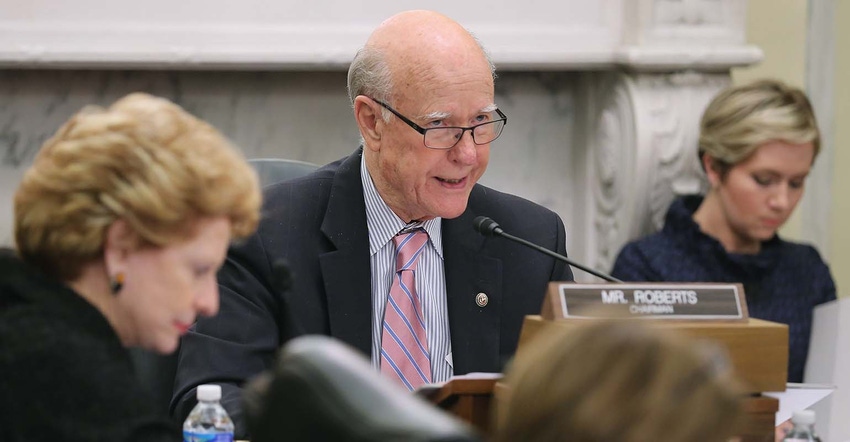September 13, 2018

Agricultural trade was the topic of today’s (Sept. 13, 2018) hearing in the Senate Agriculture Committee.
In his prepared opening remarks, Sen. Pat Roberts, R-Kansas, said he’s hearing from his constituents in Kansas about trade.
“I hear from wheat growers about the need for market access to sell what they produce. I hear from beef producers about barriers to trade that are preventing their product from entering an export market,” Roberts said. “And, I hear from producers across the agriculture industry, and across our value chain, about how trade policies impact their prices, decisions, and livelihoods.”
While the concerns aren’t new, Roberts said the U.S. has long worked to overcome barriers to trade around the world.
U.S. agriculture has worked to establish itself as a reliable supplier, but recent trade actions are causing uncertainty and unpredictability for the agricultural industry, he said.
“On top of already low prices, the agriculture sector has seen immediate negative impacts as a result of retaliatory trade actions,” Roberts said. “As time goes on without resolution, the concern of losing long-term market access only grows.”
While the administration has proposed up to $12 billion in emergency aid for some farmers impacted, ranking member Sen. Debbie Stabenow, D-Michigan, says farmers want trade, not aid.
She echoed Roberts concern regarding long-term implications of the current trade disputes, saying that producers in Michigan are concerned U.S. agriculture could permanently lose important trading partners.
“I agree that we need strong, meaningful trade enforcement when countries like China break the rules,” Stabenow said. “I also agree that it makes sense to update NAFTA -- a lot has changed since its inception in 1994. There is certainly room for improvement in a number of areas, particularly when it comes to dairy and Canada. However, all negotiations must be done thoughtfully. . . . American farmers cannot be collateral damage.”
Source: Senate Agriculture Committee
You May Also Like




